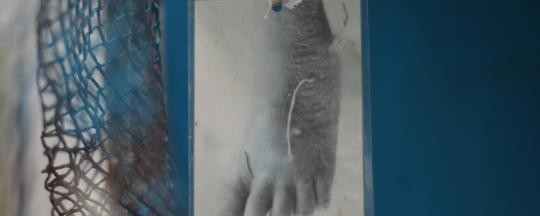South Sudan has almost eliminated the painful Guinea worm disease after only five cases were discovered in the country in 2015, the Ministry of Health and the Carter Center announced.
The five cases found represent a 93% reduction in the disease compared to 70 cases reported in 2014.
“[T]he Ministry of Health is proud to announce that South Sudan is on the verge of eliminating Guinea Worm Disease!,” read a press statement from health minister Riek Gai Kok. “This is a historical accomplishment that demonstrates the strength and ability of this young nation to make positive change!”
Guinea worm is an easily spreadable disease caused by a waterborne parasite which must be removed in a slow and painful process by pulling the creature through the infected person’s skin. The spread of the disease can be prevented by filtering water before drinking and avoiding entering contaminated pools.
Both Gai and the Carter Center, which is leading efforts to end the disease globally, lauded the work of community health workers for leading the effort to get rid of the disease in South Sudan.
“Tens of thousands of community-based health workers have shown daily acts of courage to improve the lives of their families and neighbors over three decades, often under very dangerous circumstances. Because of them, the end is in sight,” said Craig Withers, acting vice president of Carter Center Health Programs.
South Sudan had 20,581 cases of Guinea worm in 2006. The disease has dropped 99% since then in South Sudan, including seven months from November 2014 to May 2015 without a single case reported.
However, health minister Gai warned that the task is not complete. He said at-risk counties include Namorunyang, Boma, Eastern Lakes, Tonj, and Wau.
“Until there are zero cases of Guinea worm disease throughout South Sudan and the country is certified Guinea worm free, the government, the programme, and the communities will need to continue to work tirelessly to detect and contain every case of Guinea worm,” he said.
Gai said the ministry is offering a cash reward of 500 South Sudanese Pound to anyone with Guinea worm who reports themselves to a health clinic or health worker, as well as 100 SSP to anyone who encourages a patient to seek medical treatment or provides information about the case.
The Carter Center said the five South Sudanese cases were part of a total of 22 Guinea worm cases recorded worldwide in 2015, compared to 126 in 2014. The other cases were in Ethiopia (3), Chad (5), and Mali (5).
“As we get closer to zero, each case takes on increasing importance. Full surveillance must continue in the few remaining endemic nations and neighboring countries until no cases remain to ensure the disease does not return,” said former U.S. President Jimmy Carter, the founder of the organization. “The Carter Center and our partners are committed to seeing that this horrible parasitic disease never afflicts future generations.”
Gai further thanked the help of the World Health Organization, UNICEF, and the ministry of electricity, dams, irrigation, and water resources for their contributions to helping eliminate Guinea worm disease from South Sudan.
Radio Tamazuj Photo: an image of a person infected with Guinea worm disease hangs in a health clinic in South Sudan.




